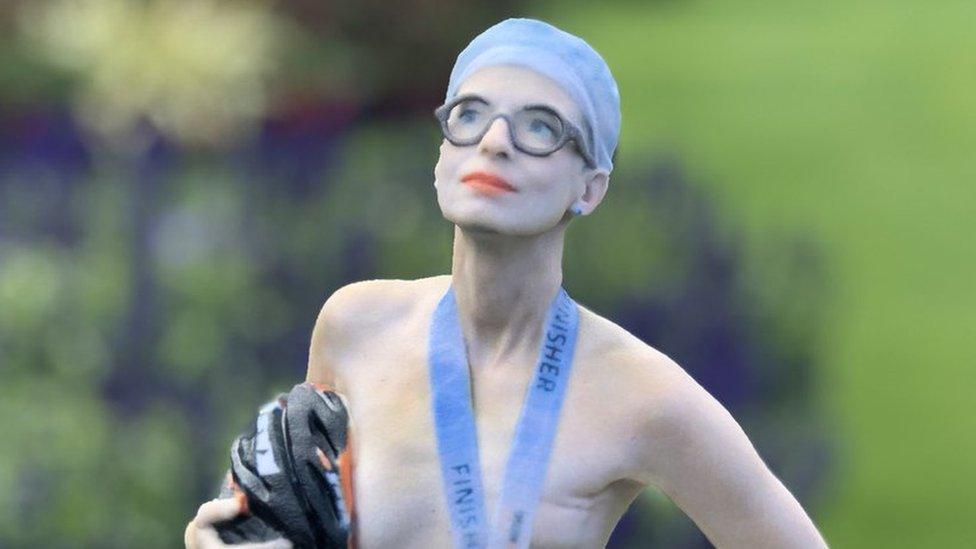The breast cancer surgeon who got breast cancer
- Published
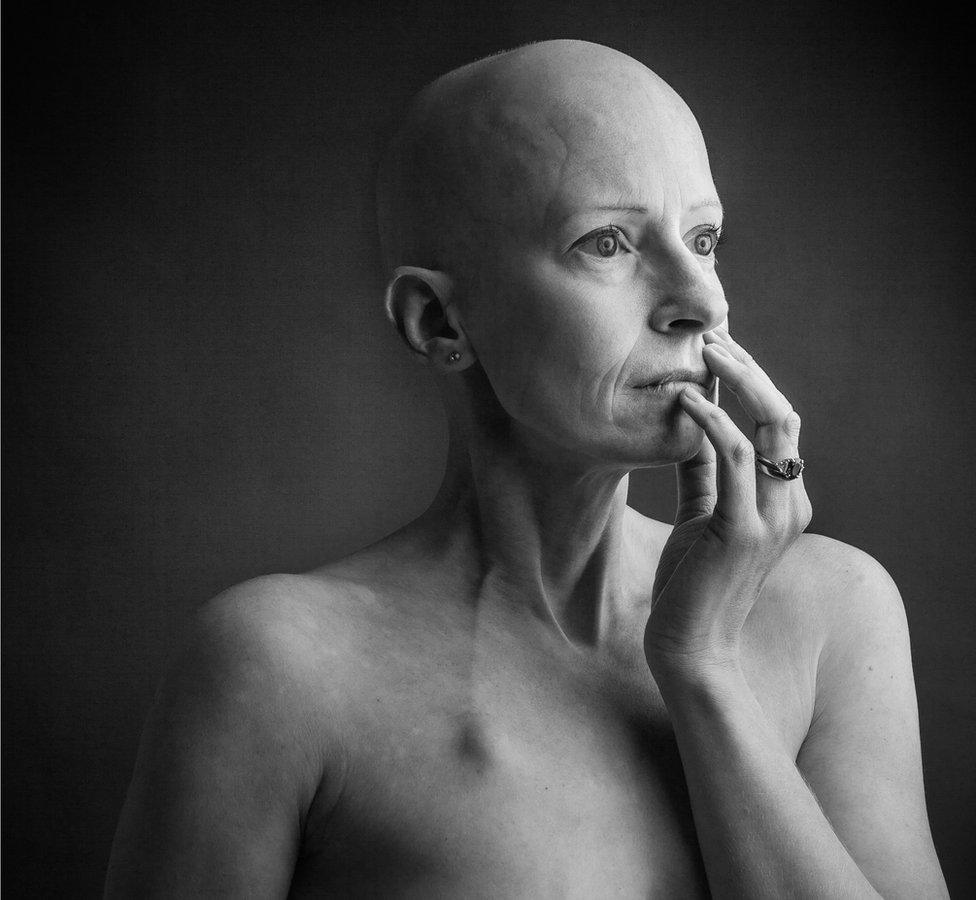
Liz O'Riordan was first diagnosed with breast cancer in 2015

"Like many women, I did not check my breasts. I thought, 'it's not going to happen to me - I'm a breast cancer surgeon'."
Liz O'Riordan ended up having to give up the job she had trained 20 years for, after she herself was diagnosed with breast cancer.
In 2015, at the age of 40, she had a mastectomy and last May suffered a recurrence of the disease.
Dr O'Riordan thought she would practise as a breast cancer surgeon for at least 20 years, but as it turned out she only worked as one for two years.
Radiotherapy for the second bout of cancer left her with reduced movement in her shoulder, causing her to make the "emotionally very hard" decision to give up operating.
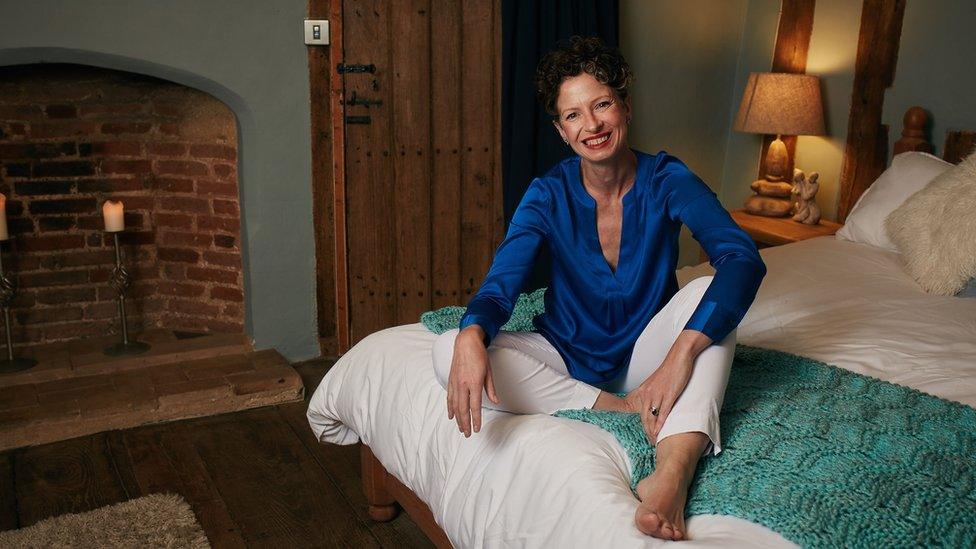
Liz O'Riordan now volunteers for the social enterprise Working with Cancer
Before she was diagnosed, Dr O'Riordan had found lumps that turned out only to be cysts, while a mammogram six months earlier had showed a healthy breast.
But another lump developed and her mother urged her to get it scanned. The surgeon, who lives near Bury St Edmunds in Suffolk, knew what her prognosis was immediately.
"Most patients are drip-fed information. I saw that scan and I knew I'd need a mastectomy, knew I'd probably need chemo because I was young, and I had a good guess of what my chance of being alive in 10 years was, all in that split-second."
Dr O'Riordan, 43, said not many doctors develop the illnesses in which they specialise; certainly, no-one in her department at Ipswich Hospital had.
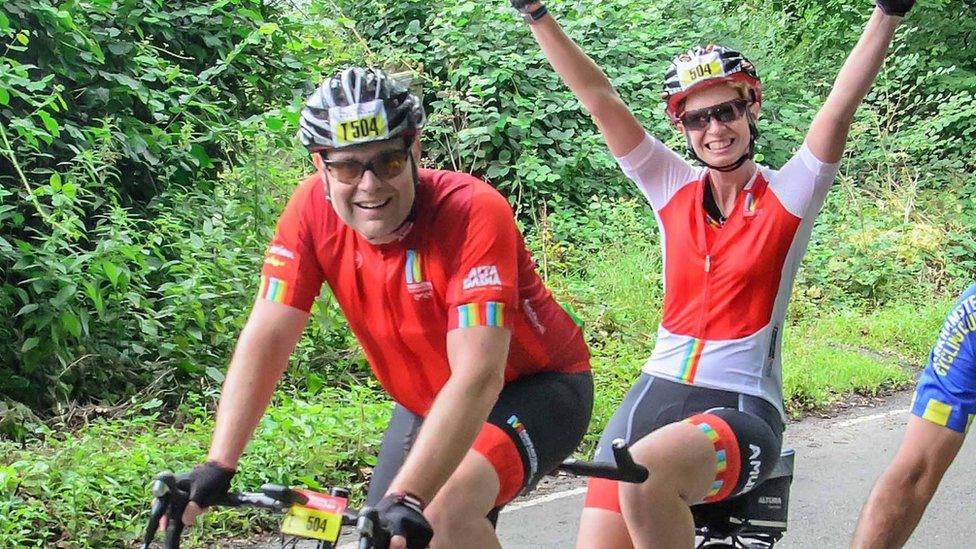
Liz O'Riordan with her husband Dermot competing in RideLondon 100 on their tandem in 2017
At first she was "terrified", and several questions ran through her mind.
"How much can I share with my husband and my parents? How much can I stop being a cancer surgeon and just be a patient?"
Although she knew what was happening physically, she had no idea what it would be like to experience actually having the disease.
"I know what it's like to tell someone they have breast cancer.
"I didn't know what it was like to have to have a stiff upper lip, dry your tears, leave the clinic, go through the waiting room, through the hospital corridor to get to the car park and to start howling."
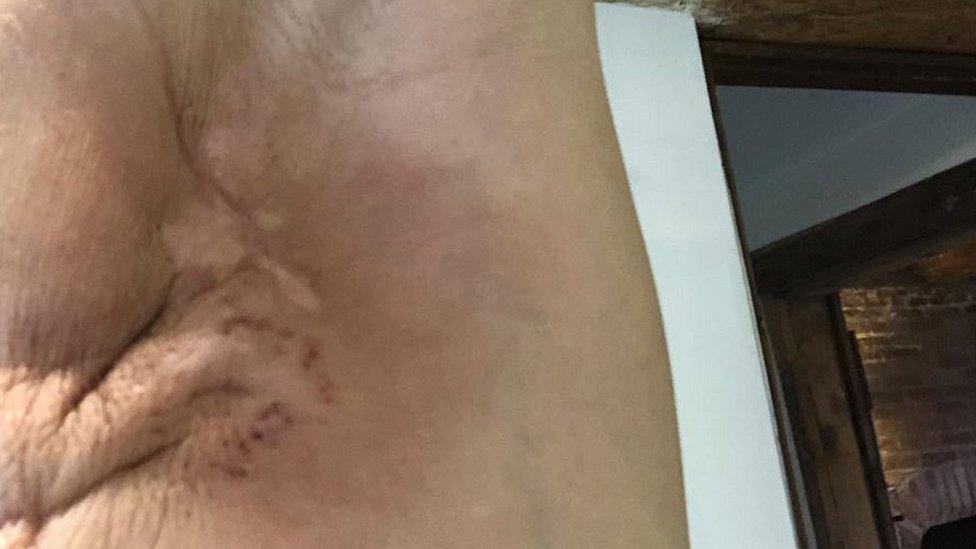
Scarring, fibrosis and tethering of the soft tissues on Dr O'Riordan's chest wall left her with reduced shoulder movement
After talking it through with her husband Dermot, she decided to announce her illness to her 1,500 Twitter followers, who mostly knew her through her love of baking, triathlons and her profession.
Social media, she said, ended up becoming her lifeline and she received an "outpouring of support".
"It was patients who told me how to cope.
"There is always someone awake at three o'clock in the morning to talk to you when you're on a steroid high."
Social media also put her in contact with other medical professionals with cancer, and she has since set up a WhatsApp group for medics with the disease.
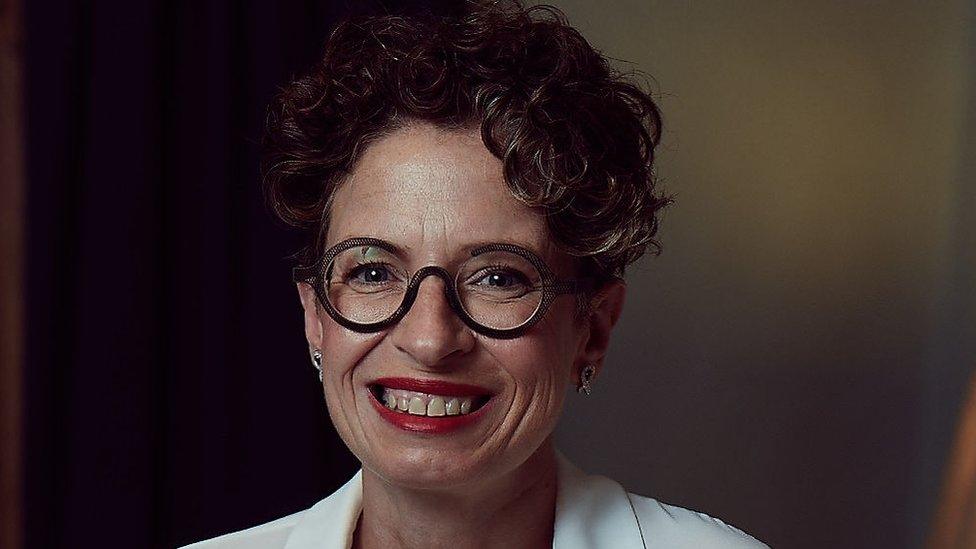
The former consultant found she was "reliving" her own cancer when she returned to her department
After treatment for her first bout of cancer, Dr O'Riordan returned to work as a surgeon at Ipswich Hospital. But she said she didn't realise how "emotionally challenging" it would be.
She said having had cancer herself, she thought she could help people in a different way.
"But it was one of the hardest things I have ever done.
"When you're breaking bad news and telling a woman they've got cancer, it's really tough at the best of times, but I was reliving it, and I could see myself and my husband and what we would have looked like when we crumpled and heard the news.
"You're so desperate to connect with someone who has a shared experience, but I couldn't - they were my patients."
She added: "I was left with pain after my mastectomy and was suddenly operating - I was very much aware that I might give them the pain that I have, and I didn't want to do that, and it was really, really hard."
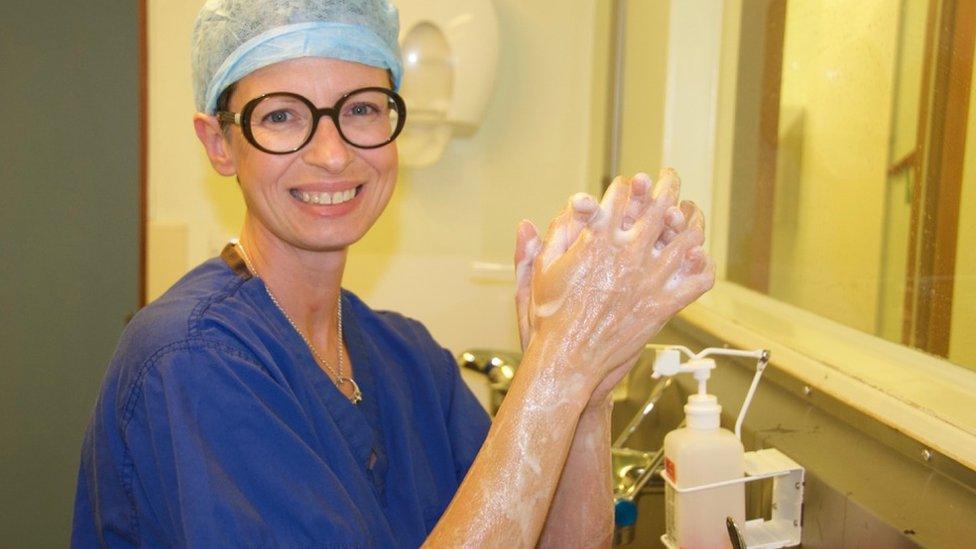
Scrubbing up before surgery
She said she also struggled to sit in weekly meetings discussing patients' prognoses.
"In my first meeting back, my first patient basically had my cancer. She was the same age, she had my cancer give or take a millimetre - she was me on paper.
"I heard all my colleagues say 'that's really bad'."
In 2018, Dr O'Riordan's cancer returned to the same armpit. It was found while she was having a scan before the removal of her reconstructed breast, which had been causing her a lot of pain.
It led to a second dose of radiotherapy to the same area, "something rarely done".
She was warned that she might not be able to move her arm properly afterwards but, if she did not undergo surgery, the outlook was bleak.
The result was more scarring, fibrosis and tethering of the soft tissues, which indeed did reduce movement in her shoulder and meant she had less strength in her arm.
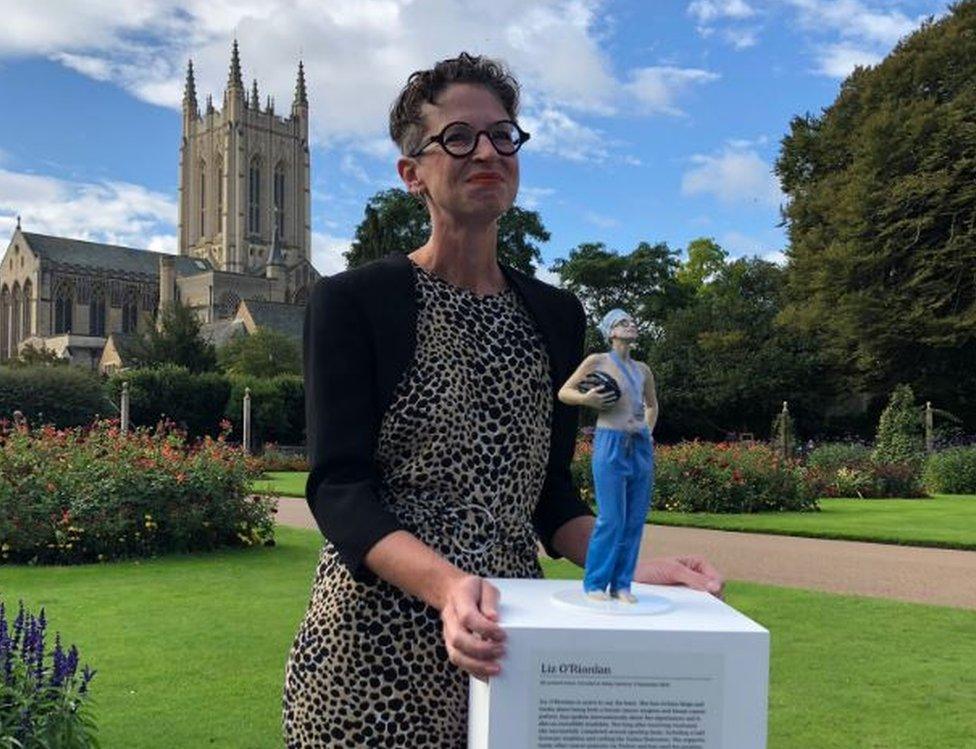
Dr O'Riordan unveiled a statue of herself in Bury St Edmunds' Abbey Gardens last year

She said her employers did their best to help her to resume her career for a second time.
"I had intensive physiotherapy, I saw an orthopaedic surgeon - because it's a huge thing to say, 'the thing I've spent 20 years of my life, and degrees, and PhDs, exams and courses to become an expert in the thing I love, I can't do again'.
"I can go about my daily life, but to be able to operate safely, that's never going to happen," she said.
By now Dr O'Riordan also felt the psychological need to have "cancer-free time", especially given that returning to work before the recurrence had been traumatic.
In addition, the risk of the cancer returning yet again was now higher than before, and there was a danger it could come back elsewhere.
After about four months she made the decision her career as a surgeon was over.
"It was bittersweet, and really, really hard saying goodbye."
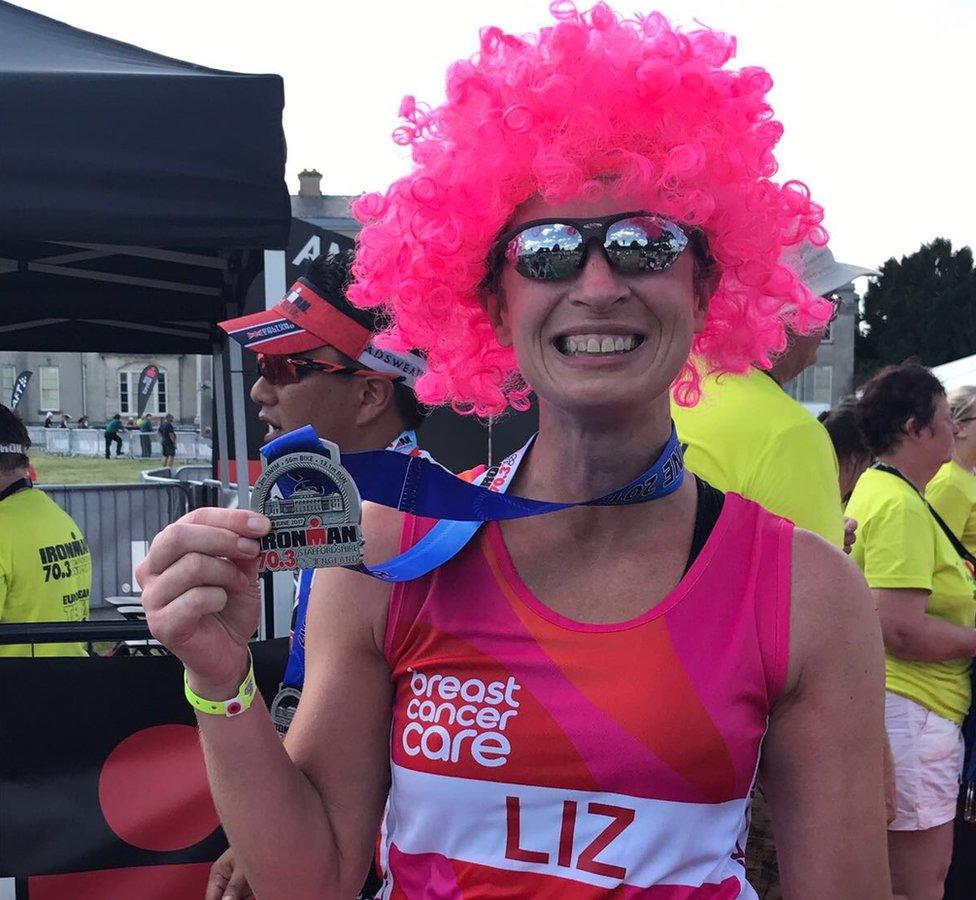
Dr O'Riordan took part in a half ironman in Staffordshire after her treatment in 2017

Ironically, she now advises people on their rights to return to the workplace after cancer.
Dr O'Riordan, whose husband is a consultant surgeon, said she was "lucky" to be able to afford not to have to do paid work.
She recently began volunteering as an ambassador for the social enterprise, Working with Cancer, which had advised her on her employment rights after she decided to return to work in 2017, following treatment for her first bout of cancer.
A temporary director at the hospital had told her at this point that she was expected back on a phased return over four weeks.
"I was still suffering from fatigue and trying to get my brain to work again," Dr O'Riordan said.
"I didn't realise that if you've had cancer, you are classified as legally disabled under the Equality Act and your employers have to make reasonable adjustments to allow you get back to work.
"So many people are just desperate to get their lives back when they have cancer, but it can be incredibly hard to find your way and a lot of employers don't know how to help cancer patients - or whether they should."
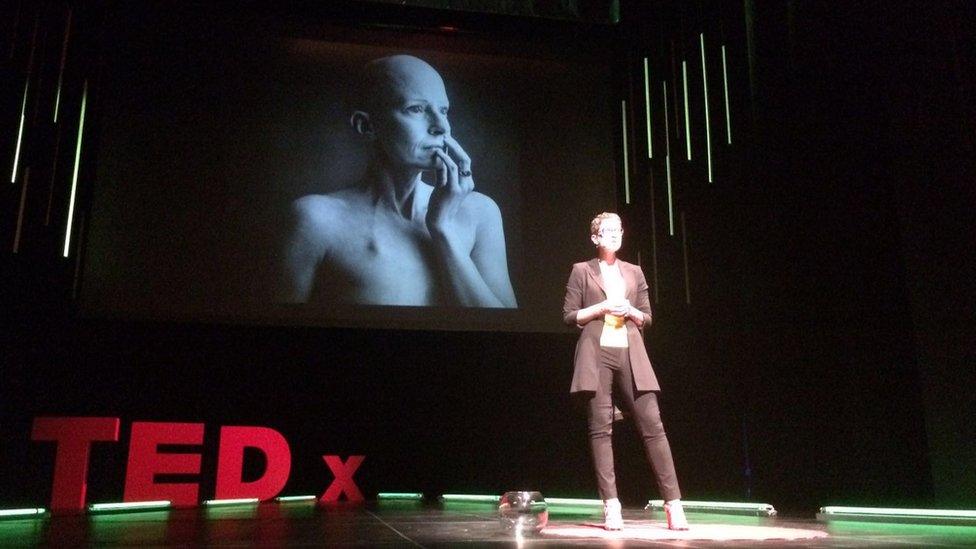
Dr O'Riordan, pictured here giving a talk in Stuttgart about patient care, is also a professional public speaker
Dr O'Riordan said most of the coaches at Working with Cancer have had the illness themselves and "they get it".
As well information about their rights, they prepare staff and employers for the emotional pitfalls.
As a result of her chemotherapy, Dr O'Riordan had short, curly hair.
Her coach asked her: "What will you do when people don't recognise you?"
She had dismissed the notion, until one day she realised a colleague she was talking to did not realise who she was.
The preparation she did with Working with Cancer, external mostly helped her to avoid any awkwardness.
Just before returning she emailed her line manager and explained she was happy to talk about her illness with colleagues, but not during work hours.
"You have a right to ask for things to be made easier for you. They can't sack you because that would be discrimination."
The former surgeon said her work as an ambassador had helped her reconnect with her sense of purpose.
"As a consultant surgeon I was helping 70, maybe 100 women a year with breast cancer.
"But through my book, the blogging, the talking and being an ambassador, external for Working with Cancer, I can help hundreds, thousands of women."
- Published14 November 2018
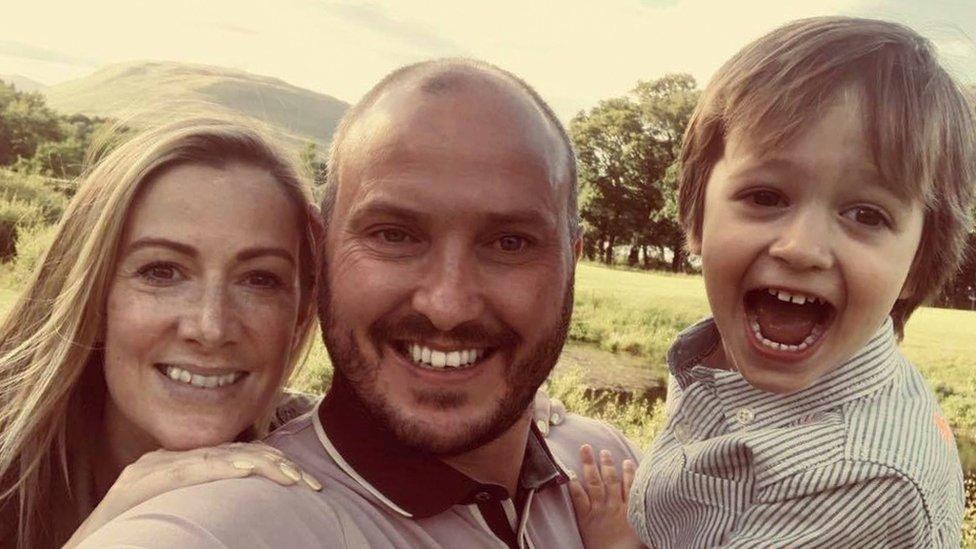
- Published10 September 2018
